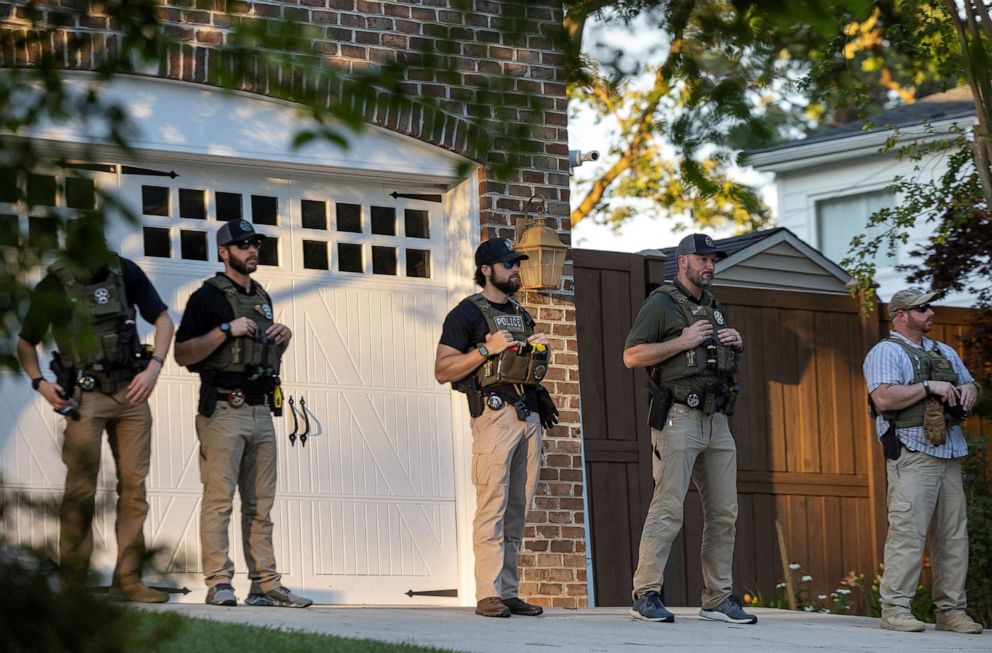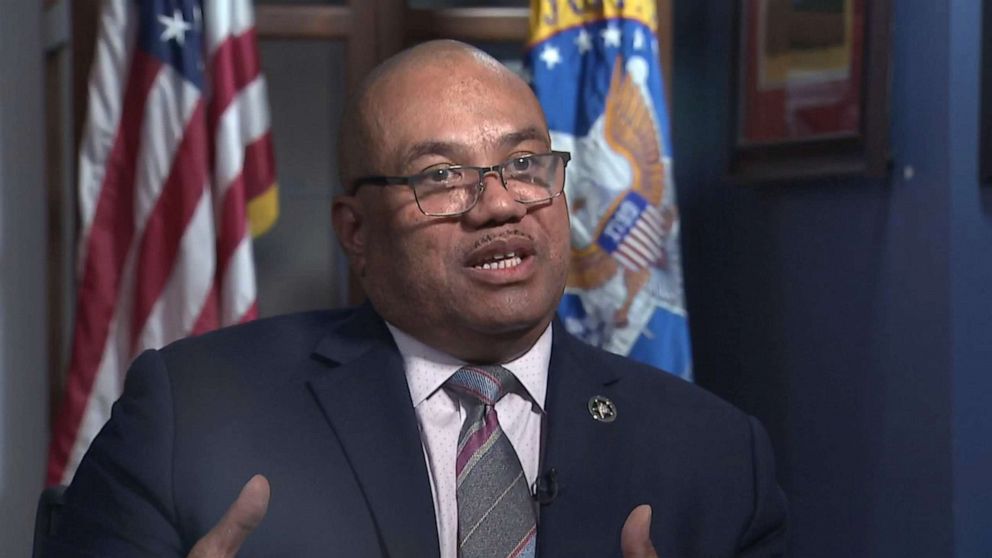US Marshals director says protecting Supreme Court justices 'a top priority'
Rodney Davis spoke with ABC News Live about recent threats.
U.S. Marshals Service Director Ronald Davis said protecting Supreme Court justices from threats has been a key part of his agency's mission even before the leaked draft of the opinion overturning Roe v. Wade in May, noting there were more than 4,500 threats to federal judges last year, including against those on the nation's high court.
"It is something that is a top priority of the agency," Davis told ABC News Chief Justice Correspondent Pierre Thomas in an interview set to air on ABC News Live "Prime" on Thursday.
"To allow judges to be intimidated, to allow judges to be threatened with violence, to influence those kind of decisions is a threat to our very democracy," he said. "So we have to make sure that the third branch of government can operate without the threat of violence and can do without fear."
When a California man allegedly traveled to the Washington, D.C., area with the intent to kill Supreme Court Justice Brett Kavanagh, it "sent a chill" through him, Davis said, adding he was proud of the deputy U.S. Marshals who first spotted the man and dissuaded the man from carrying out his alleged attack attempt.
"And it would be horrific to think that we could have had a Supreme Court justice assassinated in his home," he said.

That man has pleaded not guilty.
Amid demonstrations outside of Supreme Court justices' homes before and after the decision to overturn Roe v. Wade, Republican governors and members of Congress have urged Attorney General Merrick Garland to enforce a 1950s law prohibiting anyone "with the intent of interfering with, obstructing, or impeding the administration of justice," near a judge's residence.
Davis said enforcing the law prohibiting picketing outside federal judge's homes is not a "priority" but rather the safety and security of the justices is the Marshals Service's mission.

"I want to be clear: I have the authorities and direction I need to take action under any federal statute. Our first priority is keeping the justices safe. When there is a credible threat, the U.S. Marshals, working with our federal, state, and local partners, will act," he said.
"If so, directed, as you know, we would enforce the laws if directed to do so," he continued. "As far as the enforcement of that, that's not our priority. That's not our role right now, because we're focusing on the residents and the justices at home and in travel."
Last weekend, Supreme Court marshal Gail Curley wrote to Maryland Gov. Larry Hogan, Montgomery County, Maryland, executive Mark Erlich, Virginia Gov. Glen Youngkin and Fairfax County, Virginia, Board chairman Jeff McKay asking them to enforce state and local laws that prohibit picketing outside justices' homes.
"I am writing to request that the Virginia State Police, in conjunction with local authorities as appropriate, enforce state law that prohibits picketing outside of the homes of Supreme Court Justices who live in Virginia," the letter to Youngkin said.
In her letter to Hogan, Curley cited threatening language and over 100 protesters who gathered outside the home of a Supreme Court justice in Maryland.




